Энтони Хоуп - Английский язык с Энтони Хоупом. Узник Зенды / Anthony Hope. The Prisoner Of Zenda
- Название:Английский язык с Энтони Хоупом. Узник Зенды / Anthony Hope. The Prisoner Of Zenda
- Автор:
- Жанр:
- Издательство:Литагент «Восточная книга»1243df63-7956-11e4-82c4-002590591ed2
- Год:2009
- Город:Москва
- ISBN:978-5-478-01181-9
- Рейтинг:
- Избранное:Добавить в избранное
-
Отзывы:
-
Ваша оценка:
Энтони Хоуп - Английский язык с Энтони Хоупом. Узник Зенды / Anthony Hope. The Prisoner Of Zenda краткое содержание
В книге предлагается роман Энтони Хоупа «Узник Зенды», адаптированный (без упрощения текста оригинала) по методу Ильи Франка. Уникальность метода заключается в том, что запоминание слов и выражений происходит за счет их повторяемости, без заучивания и необходимости использовать словарь.
Пособие способствует эффективному освоению языка, может служить дополнением к учебной программе. Предназначено для студентов, для изучающих английский язык самостоятельно, а также для всех интересующихся английской культурой.
Английский язык с Энтони Хоупом. Узник Зенды / Anthony Hope. The Prisoner Of Zenda - читать онлайн бесплатно ознакомительный отрывок
Интервал:
Закладка:

The terrible temptation which was assailing me will now be understood. I could so force Michael’s hand that he must kill the King. I was in a position to bid him defiance and tighten my grasp on the crown – not for its own sake, but because the King of Ruritania was to wed the Princess Flavia. What of Sapt and Fritz? Ah! but a man cannot be held to write down in cold blood the wild and black thoughts that storm his brain when an uncontrolled passion has battered a breach for them. Yet, unless he sets up as a saint, he need not hate himself for them. He is better employed, as it humbly seems to me, in giving thanks that power to resist was vouchsafed to him, than in fretting over wicked impulses which come unsought and extort an unwilling hospitality from the weakness of our nature.
It was a fine bright morning when I walked, unattended, to the princess’s house (было ясное погожее утро, когда я, не сопровождаемый никем, шел ко дворцу принцессы), carrying a nosegay in my hand (неся в руке букетик цветов). Policy made excuses for love, and every attention that I paid her (политика оправдывала любовь, и каждый /знак/ внимания, который я оказывал ей; to make excuses – оправдываться, извиняться / за что-л. /), while it riveted my own chains (в то время как заклепывал на мне оковы; chain – цепь, цепочка; chains – оковы, узы ), bound closer to me the people of the great city, who worshipped her (крепче привязывал ко мне жителей огромного города, которые боготворили ее). I found Fritz’s inamorata, the Countess Helga, gathering blooms in the garden for her mistress’s wear (я наткнулся на возлюбленную Фрица, графиню Хельгу, собирающую в саду цветы для платья своей госпожи), and prevailed on her to take mine in their place (и уговорил ее взять мои /цветы/ вместо ее /цветов/; to prevail – восторжествовать, одержать победу; убедить, уговорить; place – место; in somebody’s / something’s place – вместо кого-л., чего-л. ). The girl was rosy with happiness (девушка светилась: «была цветущей» от счастья; rosy – розовый; румяный, цветущий ), for Fritz, in his turn, had not wasted his evening (поскольку Фриц, в свою очередь, не даром провел свой вечер), and no dark shadow hung over his wooing (и ничто не омрачало его чувств: «над его ухаживаниями не висело никакой темной тени»), save the hatred which the Duke of Strelsau was known to bear him (за исключением ненависти, которую, как известно, питал к нему герцог Стрелсо).
“And that,” she said, with a mischievous smile (а этому, – сказала она с озорной улыбкой), “your Majesty has made of no moment (ваше величество не придавали значения; moment – момент, мгновение; / устар. / важность, значение; of no moment – / устар. / неважный, не имеющий значения ). Yes, I will take the flowers (да, я возьму цветы); shall I tell you, sire, what is the first thing the princess does with them (мне сказать вам, сир, что принцесса сделает с ними в первую очередь)?”

It was a fine bright morning when I walked, unattended, to the princess’s house, carrying a nosegay in my hand. Policy made excuses for love, and every attention that I paid her, while it riveted my own chains, bound closer to me the people of the great city, who worshipped her. I found Fritz’s inamorata, the Countess Helga, gathering blooms in the garden for her mistress’s wear, and prevailed on her to take mine in their place. The girl was rosy with happiness, for Fritz, in his turn, had not wasted his evening, and no dark shadow hung over his wooing, save the hatred which the Duke of Strelsau was known to bear him.
“And that,” she said, with a mischievous smile, “your Majesty has made of no moment. Yes, I will take the flowers; shall I tell you, sire, what is the first thing the princess does with them?”
We were talking on a broad terrace that ran along the back of the house (мы разговаривали на широкой террасе, проходившей вдоль тыльной стороны дома), and a window above our heads stood open (и окно у нас над головами было открыто).
“Madame!” cried the countess merrily (госпожа! – крикнула графиня весело), and Flavia herself looked out (и сама Флавия выглянула /из окна/). I bared my head and bowed (я обнажил голову и поклонился). She wore a white gown, and her hair was loosely gathered in a knot (на ней было белое платье, а волосы были небрежно собраны в узел; loose – свободный; ненатянутый, нетугой, расхлябанный; loosely – свободно; небрежно ). She kissed her hand to me, crying (она послала мне воздушный поцелуй: «поцеловала свою руку для меня», крикнув):
“Bring the King up, Helga; I’ll give him some coffee (проводи короля наверх, Хельга; я угощу его кофе).”
The countess, with a gay glance, led the way, and took me into Flavia’s morning-room (графиня, весело взглянув, проводила меня в маленькую столовую Флавии; to lead the way – показывать путь, вести за собой; to take – брать; приводить / кого-л. куда-л. / ; morning-room – маленькая столовая, примыкающая к кухне ). And, left alone, we greeted one another as lovers are wont (и оставшись наедине, мы поздоровались так, как это делают влюбленные; wont – имеющий обыкновение ). Then the princess laid two letters before me (потом принцесса положила передо мной два письма). One was from Black Michael (одно было от Черного Михаэля) – a most courteous request that she would honour him by spending a day at his Castle of Zenda (чрезвычайно вежливая просьба удостоить его чести, проведя денек в замке Зенды), as had been her custom once a year in the summer (как обычно она делала: «что было ее привычкой» раз в году летом), when the place and its gardens were in the height of their great beauty (когда имение и все сады в нем находятся в самом расцвете своей восхитительной красоты; place – место; имение, усадьба; height – высота, вершина; апогей, разгар; great – большой, громадный; великолепный, восхитительный / разг. /). I threw the letter down in disgust (я раздраженно бросил письмо /на стол/; disgust – отвращение, омерзение; недовольство, раздражение ), and Flavia laughed at me (и Флавия засмеялась надо мной). Then, growing grave again, she pointed to the other sheet (затем, снова став серьезной, она указала на другой листок).

We were talking on a broad terrace that ran along the back of the house, and a window above our heads stood open.
“Madame!” cried the countess merrily, and Flavia herself looked out. I bared my head and bowed. She wore a white gown, and her hair was loosely gathered in a knot. She kissed her hand to me, crying:
“Bring the King up, Helga; I’ll give him some coffee.”
The countess, with a gay glance, led the way, and took me into Flavia’s morning-room. And, left alone, we greeted one another as lovers are wont. Then the princess laid two letters before me. One was from Black Michael – a most courteous request that she would honour him by spending a day at his Castle of Zenda, as had been her custom once a year in the summer, when the place and its gardens were in the height of their great beauty. I threw the letter down in disgust, and Flavia laughed at me. Then, growing grave again, she pointed to the other sheet.
“I don’t know who that comes from,” she said. “Read it (я не знаю, от кого оно пришло, – сказала она, – прочитайте его).”
I knew in a moment (через мгновение я /уже это/ знал). There was no signature at all this time (подписи на этот раз не было вообще), but the handwriting was the same as that which had told me of the snare in the summer-house (но почерк был точно таким же, как тот, что сообщил мне о западне в летнем домике): it was Antoinette de Mauban’s (это был /почерк/ Антуанетты де Мобан).
“I have no cause to love you,” it ran (у меня нет причины любить вас, – говорилось в нем; to run – бежать; гласить / о тексте, документе и т. п. /), “but God forbid that you should fall into the power of the duke (но Боже упаси попасть вам в руки: «во власть» герцога; to forbid – запрещать; не позволять, не давать возможности ). Accept no invitations of his (не принимайте никаких его приглашений). Go nowhere without a large guard (никуда не выходите без усиленной стражи; large – большой; многочисленный ) – a regiment is not too much to make you safe (полк – это не слишком много для обеспечения вашей безопасности). Show this, if you can, to him who reigns in Strelsau (покажите это /письмо/, если можете, тому, кто правит в Стрелсо).”
“Why doesn’t it say ‘the King’?” asked Flavia, leaning over my shoulder (почему здесь не говорится «король»? – спросила Флавия, склоняясь над моим плечом), so that the ripple of her hair played on my cheek (так что ее волнистые волосы коснулись моей щеки: «заиграли на моей щеке»; ripple – рябь, зыбь; волнистость / волос /). “Is it a hoax (это розыгрыш)?”
Читать дальшеИнтервал:
Закладка:
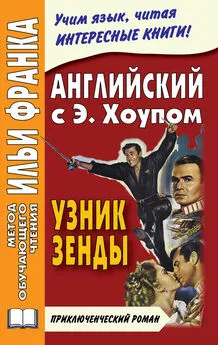
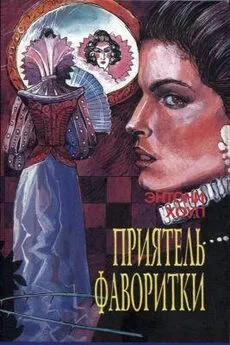
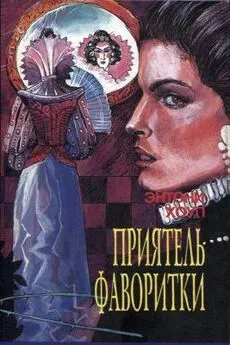
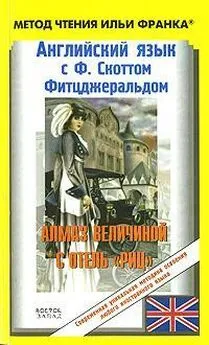
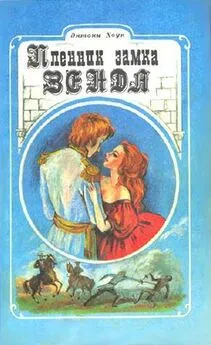
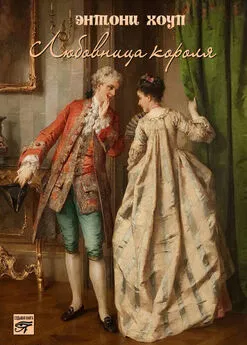

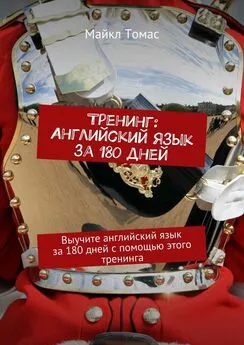
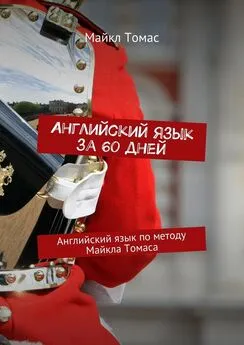

![Энтони Хоуп - Пленник Зенды. Месть Руперта [сборник]](/books/1090466/entoni-houp-plennik-zendy-mest-ruperta-sbornik.webp)